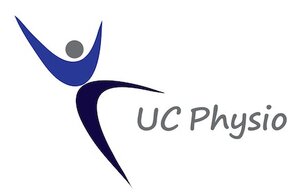Clinical Pilates.
What is clinical pilates?
Developed by physiotherapists in the early 1990’s, Clinical Pilates is a combination of traditional Pilates and the most recent research into injury prevention and rehabilitation. UC Physio Clinical Pilates experts in Upper Coomera use specialised low impact equipment to work on muscle control rather than strength, in patterns that are functional.
Clinical Pilates can be used for rehabilitation from any injury or as part of a general exercise program.
Pilates can provide you with safe spinal stabilisation and core stability exercises that will not only decrease back pain and improve function, but will also prevent the recurrence of back pain.
Pilates treatment at UC Physio
At our Upper Coomera clinic on the Gold Coast, UC Physio Clinical Pilates professionals assess each patient individually. They will discuss all of your injuries (past and current), address any current symptoms that may require manual treatment and discuss goals of treatment, and all different options that may be suitable in order to address your concerns..
Our physiotherapist then develops a Clinical Pilates program specifically for you, addressing key problem areas based on your goals, strengths and weaknesses. As such this treatment is suitable for any age or ability.
Who can benefit from pilates?
Because the programs are individually designed everyone can benefit from Clinical Pilates.
If you are striving for improved sports performance, recovering from an injury or simply wanting to improve your general health and wellbeing, then Clinical Pilates may be the trigger you are looking for that will see improvements in your everyday life. Regardless of your background, mobility or activity level, Pilates is sure to improve your overall strength, flexibility and balance.
Feel free to visit our Upper Coomera clinic on the Gold Coast for more information, or contact us by phone. UC Physio wants to keep you moving easily and enjoying life, every day!
Case Study
Mrs Stretch now 38 enjoyed many sports, especially dancing when she was younger. Her problems started after a car accident and subsequent chronic fatigue in her late teens. She reported ever increasing problems and struggling since. She always seemed to have problems with her left side as her shoulder, neck and back always sore and her hips feel out. Unfortunately everything she has tried doesn’t seem to help. Massage feels good for a bit but doesn’t last. She has tried walking, jogging and swimming but these just make her feel worse. Since she turned 31 these problems and the rest of her body seem to be getting the best of her. She has also been diagnosed with depression, irritable bowel syndrome and fibromyalgia and the result is she now takes 3-4 different medications every day for depression and pain. Her constant medical issues resulted in a divorce and she has been in the dumps since. She just wants to do something and heard that Clinical Pilates is different and that it might help.
On arrival Mrs Stretch had some registration forms and baseline measure to fill out. These help the physiotherapist determine her current level of function and will assist identifying improvements in quality of life and function down the track. Initial assessment of Mrs Stretch found her quality of movement and general control improved in more cervical flexion positions. Further testing also showed that biased exercises resulted in immediate improvements in certain basic functional and structural tests. A 3 month program of supervised left biased flexion exercises in relative neck flexion was started. This program was designed to improve her exercise tolerance, positively affect her depression and exercise her in a specific directional bias. These exercises were slowly altered to over the 3 month period gradually increasing levels of complexity that had her mind working as much as her body. Following the three month program she had improved with her functional ability and basic functional tests and in consultation with her GP was beginning to reduce some of her medications for the first time in 16 years.
